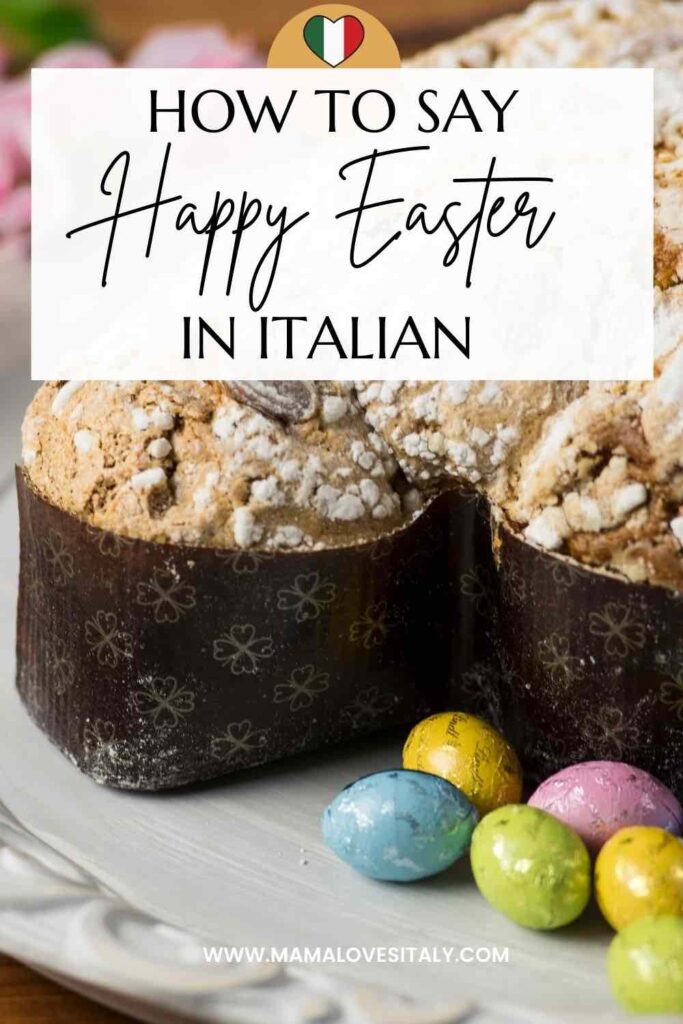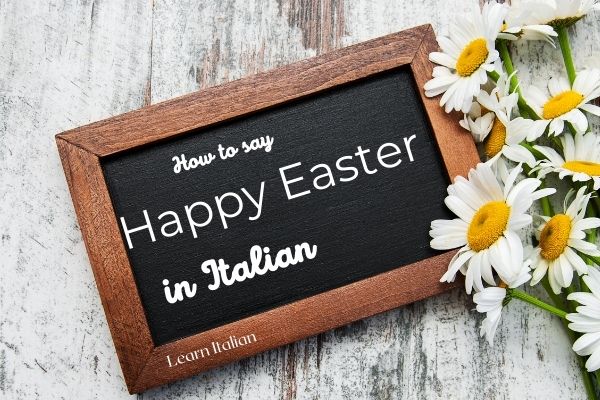As the vibrant colors of spring burst forth and the sweet sound of church bells fills the air, the joyous celebration of Easter approaches. In many countries, it’s a time for family gatherings, delectable treats, and heartfelt greetings. If you’re planning to immerse yourself in the Italian Easter traditions this year, knowing how to convey your Easter wishes in the local language is essential.

Image: mamalovesitaly.com
Whether you’re sending a thoughtful message to loved ones near and far or exchanging warm greetings with your Italian neighbors, mastering the art of saying “Happy Easter in Italian” will enhance your Easter experience.
Buonissima Pasqua: The Heartfelt Easter Greeting
The most common and heartfelt way to wish someone a happy Easter in Italian is “Buonissima Pasqua.” This phrase translates directly to “Very Happy Easter” and perfectly captures the spirit of joy and celebration associated with this special day.
When pronouncing “Buonissima Pasqua,” the emphasis falls on the “issi” syllable, giving it a cheerful and upbeat intonation. If you’re feeling particularly enthusiastic, you can add a slight nod or a warm smile to convey your sincere wishes.
Buona Pasqua: A Traditional Easter Salutation
Another widely used Easter greeting in Italian is “Buona Pasqua.” This translates to “Happy Easter” and is a simple yet meaningful way to express your Easter wishes.
While both “Buonissima Pasqua” and “Buona Pasqua” are acceptable greetings, “Buonissima Pasqua” is often preferred as it conveys a stronger sense of joy and well wishes. However, you can choose either phrase depending on your personal preference and the formality of the situation.
The Origins of Easter Greetings in Italian
The Italian Easter greetings “Buona Pasqua” and “Buonissima Pasqua” have deep-rooted origins in the country’s rich religious and cultural heritage.
Easter, known as “Pasqua” in Italian, is a significant holiday in the Catholic Church. The word “Pasqua” itself is derived from the Hebrew word “Pesach,” which means “to pass over.” This refers to the biblical story of the Israelites’ liberation from slavery in Egypt, where God passed over their homes during the tenth plague, sparing their firstborn sons.
Over time, the term “Pasqua” came to be associated with the Christian celebration of Easter, which commemorates the resurrection of Jesus Christ and his triumph over death. The greetings “Buona Pasqua” and “Buonissima Pasqua” reflect this deep-seated Christian tradition and the joy and hope associated with the Easter season.

Image: mamalovesitaly.com
Tips for Using Easter Greetings in Italian
Now that you know the different ways to say “Happy Easter” in Italian, let’s explore some tips to help you use these greetings appropriately:
- Context and Formality: When choosing between “Buona Pasqua” and “Buonissima Pasqua,” consider the context and formality of the situation. “Buonissima Pasqua” is more suitable for informal settings and when you want to convey a particularly warm and enthusiastic wish. “Buona Pasqua” is a more traditional and formal choice.
- Pronunciation: Practice pronouncing the greetings correctly. The emphasis in “Buonissima Pasqua” falls on the “issi” syllable, while in “Buona Pasqua,” it’s on the “Buona” syllable. Proper pronunciation will help you convey your Easter wishes confidently.
- Combine with Other Greetings: You can combine Easter greetings with other expressions to create a more personalized message. For example, you can say “Tanti auguri di buona Pasqua,” which means “Best wishes for a happy Easter”
- Be Creative: Don’t be afraid to be creative with your Easter greetings. You can write a heartfelt note, send a festive Easter card, or even create a personalized Easter-themed gift. A thoughtful gesture will surely be appreciated.
Frequently Asked Questions
Here are some frequently asked questions about saying “Happy Easter” in Italian:
- What’s the difference between “Buona Pasqua” and “Buonissima Pasqua”?
“Buona Pasqua” means “Happy Easter” and is the more traditional greeting. “Buonissima Pasqua” means “Very Happy Easter” and conveys a stronger sense of joy and enthusiasm. - How do I pronounce “Buonissima Pasqua” correctly?
The emphasis in “Buonissima Pasqua” falls on the “issi” syllable. Pronounce it as “bwown-ISS-i-ma pash-kwa.” - Can I use “Felice Pasqua” to wish someone a happy Easter?
Yes, “Felice Pasqua” is another way to say “Happy Easter” in Italian. However, it’s less common than “Buona Pasqua” or “Buonissima Pasqua.”
How To Say Happy Easter In Italian
Conclusion
Saying “Happy Easter